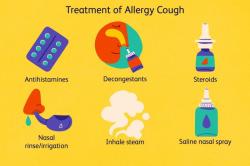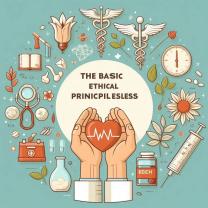Can You reverse an allergy?
While it is not always possible to completely "cure" allergies in the traditional sense, there are some treatments and strategies that can help manage and, in some cases, reduce the severity of allergic reactions. The effectiveness of these approaches can vary depending on the type and severity of the allergy. Here are some methods for addressing allergies:
Allergen Avoidance: The most effective way to manage allergies is to avoid the allergen that triggers the reaction. For example, if you have a food allergy, avoiding that specific food is crucial. For environmental allergies, such as pollen or dust mites, reducing exposure can be helpful.
Immunotherapy (Allergy Shots): Immunotherapy, commonly known as allergy shots, is a treatment that can reduce the severity of allergies, particularly for seasonal allergies like pollen. It involves gradually exposing the person to small amounts of the allergen to build up tolerance over time. While it doesn't always result in a complete cure, it can significantly reduce symptoms.
Sublingual Immunotherapy (SLIT): SLIT is a newer form of immunotherapy that involves placing allergen extracts under the tongue. It can be a more convenient and less invasive alternative to traditional allergy shots, particularly for certain allergens.
Medications: Over-the-counter or prescription medications, such as antihistamines, decongestants, and corticosteroids, can help manage allergy symptoms. These medications can provide relief but do not provide a permanent cure.
Allergen-Free Products: For individuals with allergies to common household allergens, using allergen-proof covers for bedding, high-efficiency particulate air (HEPA) filters, and allergen-free cleaning practices can help reduce exposure.
Acupuncture: Some people with allergies explore alternative treatments like acupuncture to alleviate symptoms. While research on its effectiveness is mixed, some individuals report relief from allergy symptoms.
Dietary Changes: For individuals with food allergies, strict avoidance of the allergenic food is the primary way to manage the allergy. In some cases, allergies to certain foods may be outgrown over time, especially in children.
Lifestyle Adjustments: Making changes to your lifestyle, such as using air purifiers, keeping windows closed during high pollen seasons, and maintaining good hygiene, can help reduce exposure to allergens.
It's important to note that allergies vary widely in their severity and how they respond to treatment. Some allergies are lifelong, while others, particularly in children, may be outgrown. Allergy management often involves working closely with an allergist or immunologist to develop a personalized treatment plan.
While complete reversal or "cure" of allergies may not always be possible, many individuals can achieve significant relief and improved quality of life through the various treatment and management strategies available.
Can Allergies Be Reversed or Cured?
There is currently no cure for allergies. However, there are treatments and lifestyle changes that can help manage allergy symptoms and reduce the risk of allergic reactions.
Allergy Treatments: Medications and Immunotherapy
There are a variety of allergy medications available, including over-the-counter and prescription medications. Over-the-counter allergy medications can help to relieve mild allergy symptoms, such as sneezing, runny nose, and itchy eyes. Prescription allergy medications can be used to treat more severe allergy symptoms.
Immunotherapy is another type of allergy treatment. Immunotherapy involves exposing the person to small amounts of the allergen over time, which can help the body build up tolerance to the allergen and reduce the severity of allergic reactions.
Lifestyle Changes for Allergy Management
There are a number of lifestyle changes that can help manage allergy symptoms, such as:
- Avoiding the allergen as much as possible
- Washing hands frequently
- Keeping the home clean and free of dust and pollen
- Using an air purifier
- Wearing a mask when outdoors during pollen season
Preventing Allergies: Is it Possible?
There is no guaranteed way to prevent allergies. However, there are some things that can be done to reduce the risk of developing allergies, such as:
- Breastfeeding for at least six months
- Introducing solid foods one at a time at around six months of age
- Avoiding exposure to allergens during early childhood
The Role of Allergists in Allergy Management
Allergists are doctors who specialize in the diagnosis and treatment of allergies. Allergists can help people with allergies to identify their allergens, develop a treatment plan, and monitor their progress.
Allergists can also provide information and support to people with allergies and their families.
If you have allergies, it is important to see an allergist to discuss your treatment options and develop a plan to manage your symptoms.













